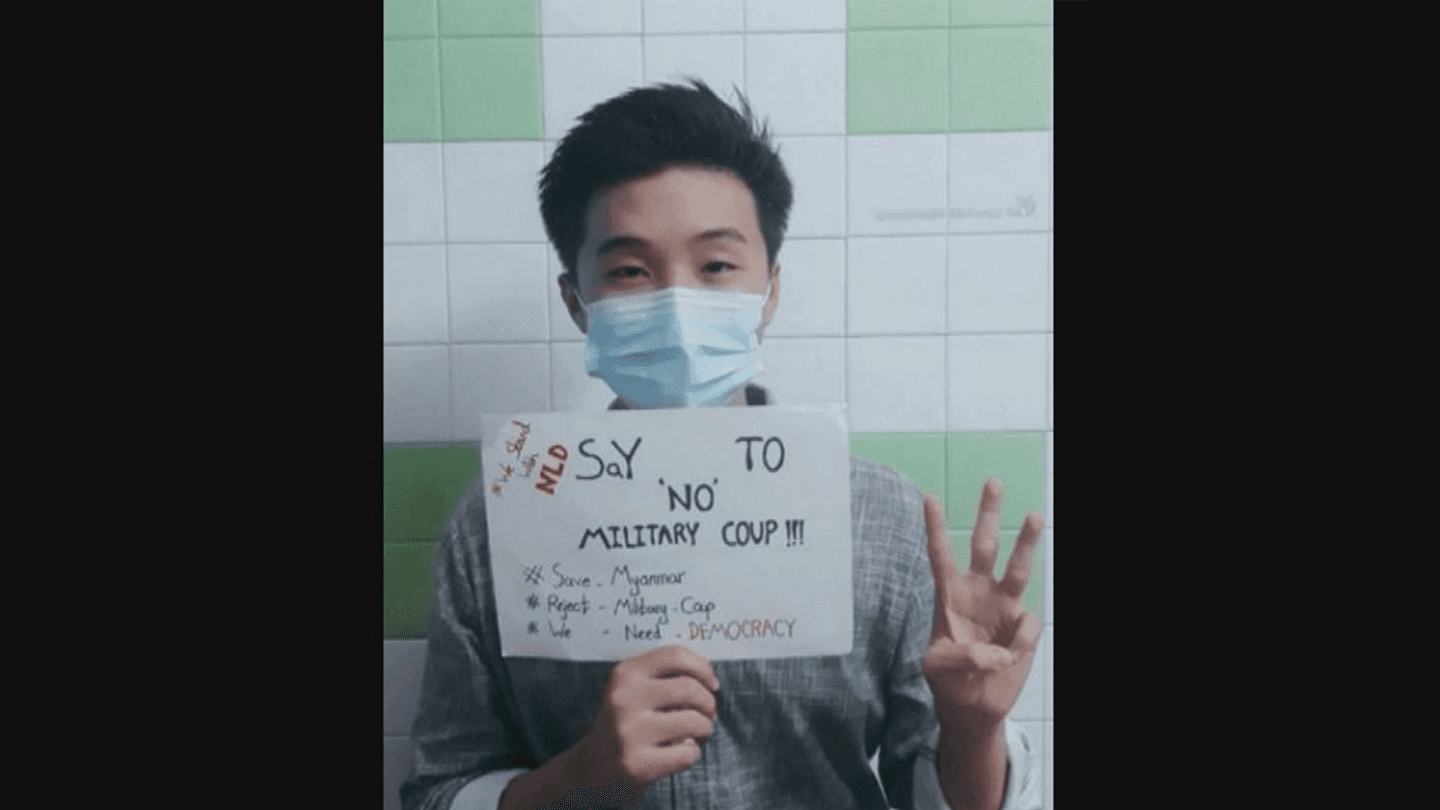Growing up, Khant Nyar Hein always wanted to become a doctor. He knew of the poverty endemic to rural Myanmar and vowed to one day work in the countryside and provide free healthcare to the people. As a 17-year-old medical student, he was on the cusp of achieving this dream. But in March, while participating in a protest against the military coup, he was shot and killed.
In death, he has a legacy of a different nature. Video of the police’s brutal handling of his body in the minutes following the shooting quickly spread on social media and he has become something of an icon for supporters of the pro-democracy movement around the world.
But this is scant consolation for Khant Nyar Hein's family.
Lab coats for democracy
Following the coup on February 1, protests broke out throughout Myanmar. In just three weeks, the number of protesters is believed to have swelled into the millions. Among the first people to take to the streets were medical students, their white lab coats quickly becoming a symbol of nonviolent resistance.
But on February 28, the military launched a large-scale crackdown on the protests. Cities were filled with the sounds of gunfire and screams of terror. According to the United Nations, at least 18 people were killed on that day alone. In the following months, the situation on the ground only got more violent.
Despite these circumstances, the white lab coats did not back down. On March 14, they were front and center during a protest in Yangon. Khant Nyar Hein was demonstrating with a contingent of medical students in the city’s Tamwe Township when police opened fire. The crowd dispersed but when the gunfire subsided, the body of a young man was lying on the ground. It was Khant Nyar Hein.
Police attack a student who failed to escape in time. Khant Nyar Hein can be seen on the ground, not moving. Blood seems to be flowing around him. Police approach but do not make any attempt to help.
Two policemen drag away Khant Nyar Hein, who is apparently unconscious. This video subsequently went viral on social media. It is unknown whether he was already dead at this point. Around the same time, his father got word that his son had been shot. He later watched this video to find out what exactly happened.
Father:
“It didn’t look like they were handling a human body. It was as if they were dragging away an animal. My son is a human. It was very painful to see as his parent. My head almost burst from the grief and anger.”
“My son’s dream is over.”
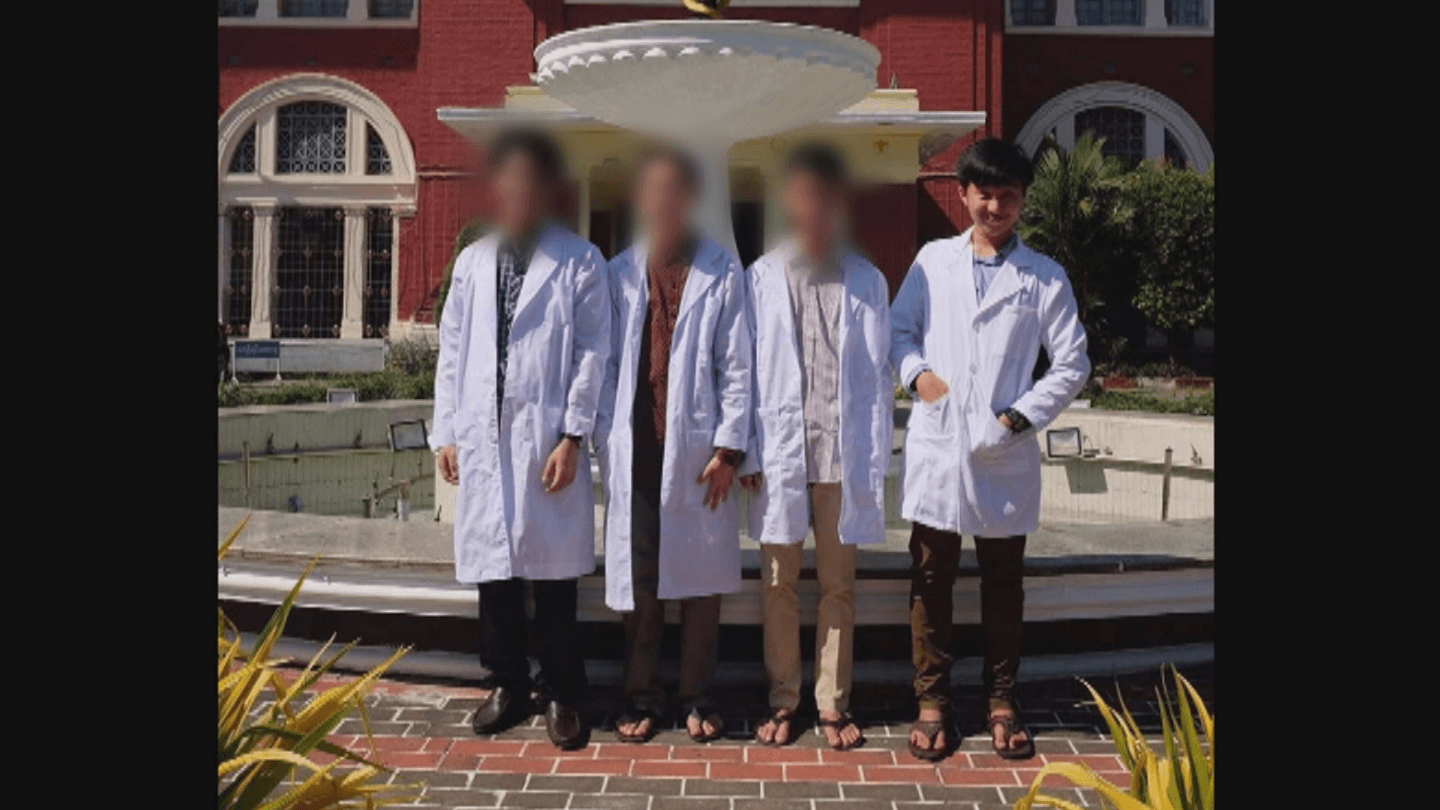
Khant Nyar Hein's father says his son was a kind and caring person who had a deep love for animals as a child. He dreamed of becoming a doctor and was studying at medical school to make this a reality.
Father:
“My son was smart and very kind. He hated violence. The people of Myanmar are poor. His dream was to become a doctor and work in a village to help them. He wanted to provide free medical care to people who could not afford it. But it’s only a dream now.”
Disagreement over protests
When Khant Nyar Hein first began taking part in protests with his fellow students, his father was not happy. It wasn't that he disagreed with his son’s beliefs; he was simply worried about his safety.
In 1988, there were similar protests against the previous military regime. Khant Nyar Hein's father was in junior high school at the time and many fellow students were killed in the crackdown. He told his son about what had happened and warned him to stay away from the protests. But Khant Nyar Hein did not listen.
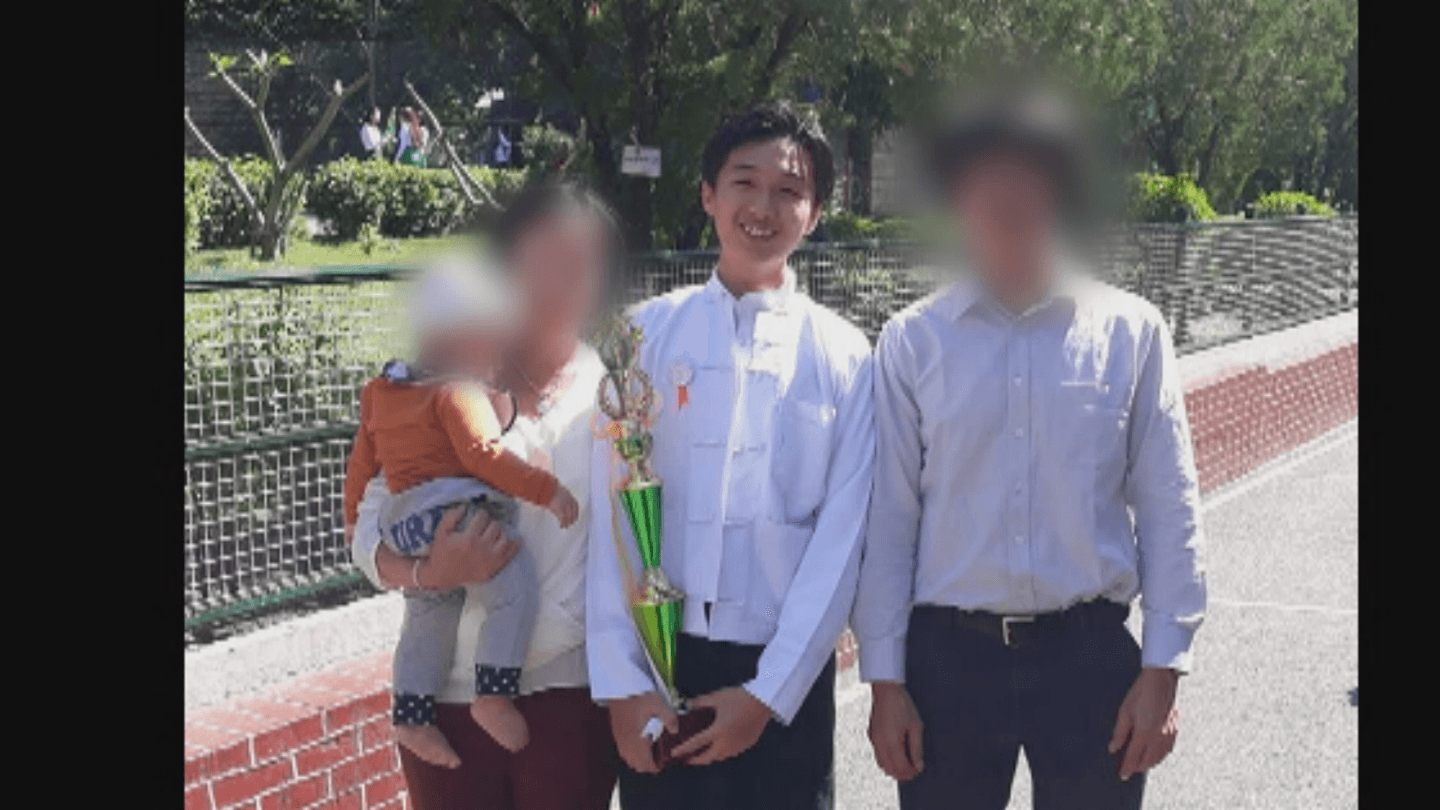
Father:
“My son was a very intelligent and understanding child, but he would talk back,” his father says. “He would chide us adults for lacking courage and say that if the young people didn’t protest, nobody would. For them, there is still the future. They can't stand people trying to take that away from them.”
Day of the protest
On the morning of March 14, Khant Nyar Hein's father noticed his son changing to go out. He asked where he was going but did not get an answer.
While they ate breakfast together, he realized that Khant Nyar Hein was getting ready to take part in a protest. He told him not to go and his son nodded silently.
After eating, Khant Nyar Hein returned to his room. But a little later, he quietly slipped out of the house. Once his father noticed, he quickly went searching for him on his bicycle. But he was unable to find him and returned home.
Hours later, he received a call from one of his son’s friends. The voice on the other end told him in frantic tones that Khant Nyar Hein had been shot.
The father ran out of the house, rushing from hospital to hospital in search of his son. But he had no luck. Khant Nyar Hein was not in the records anywhere. Eventually, he learned that his son had been taken to a military hospital. He went there but was not allowed in. A doctor told him that they were performing an autopsy and that he would have to come back the following day. He was devastated to learn his son was dead. But he realized he had no choice but to leave. He returned the following morning at 7:30. It wasn’t until three in the afternoon that he was finally able to see his son's body.
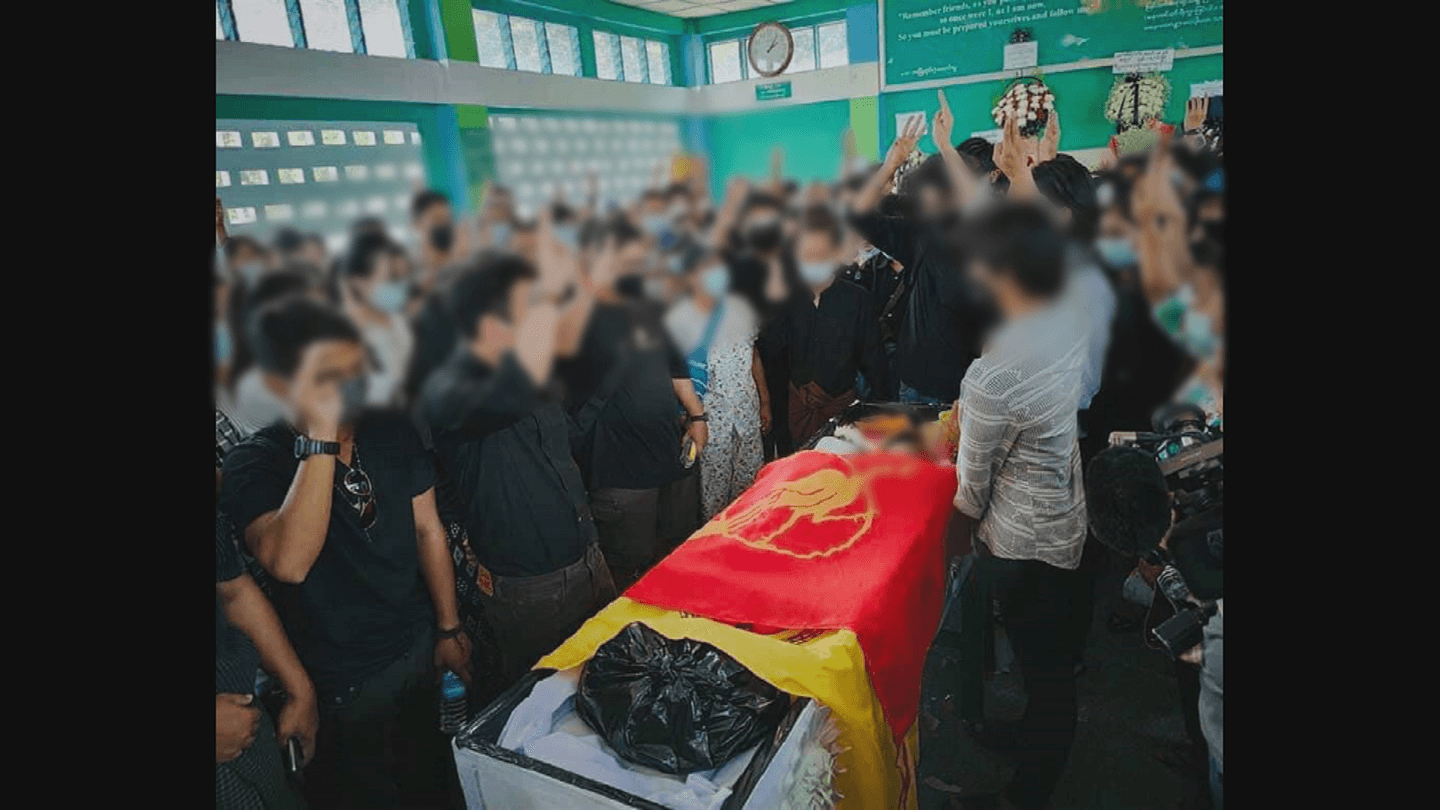
Nothing is the same
Over three months have passed since Khant Nyar Hein’s death. In Yangon, the protests have eased up and there are no longer daily confrontations between demonstrators and the military. At first glance, it may seem like a measure of calm has returned to everyday life. But for Khant Nyar Hein’s father, nothing will ever be the same. He says he thinks about his son every day.
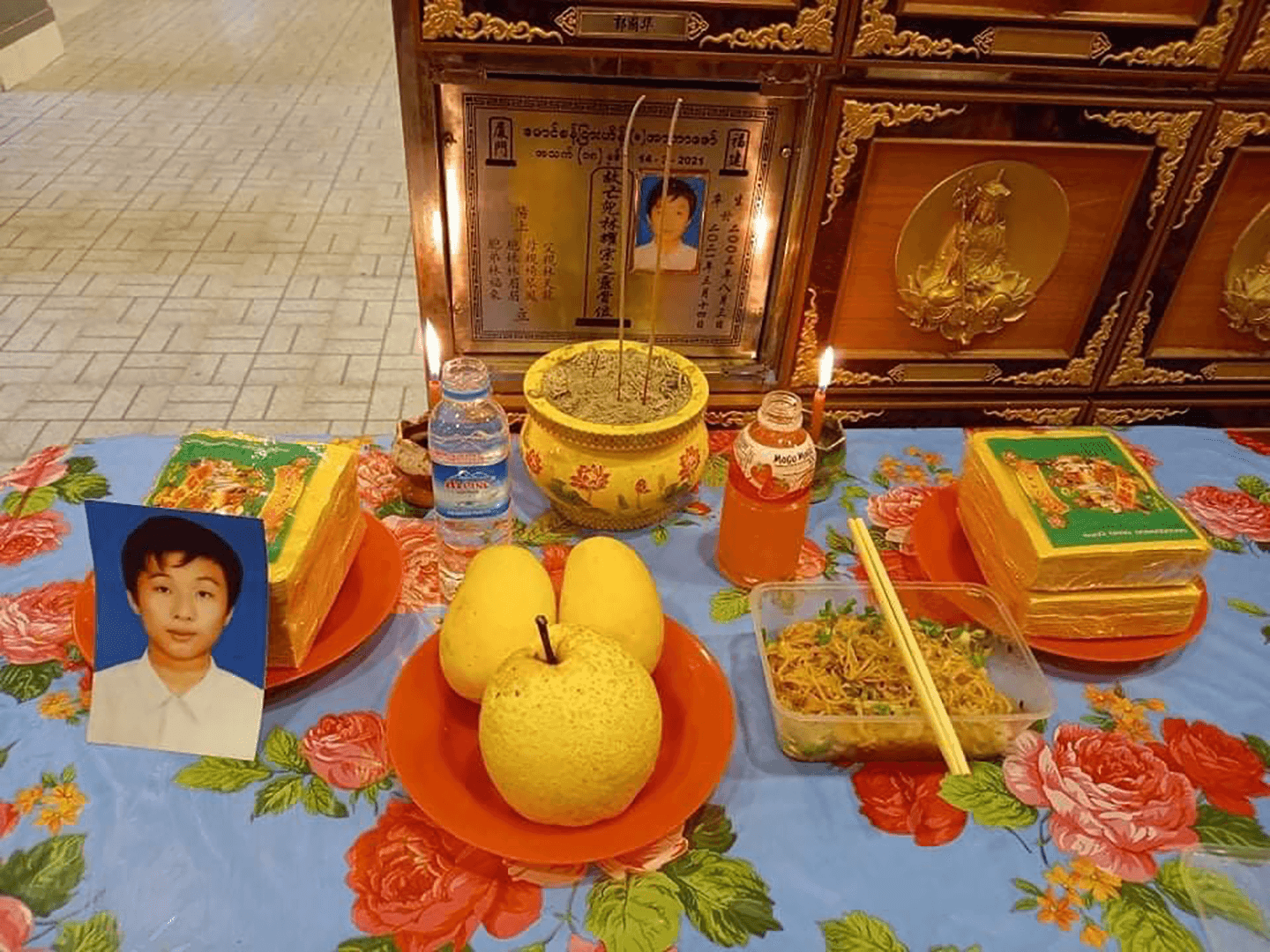
According to local human rights organization AAPP, the death toll from the military crackdown stood at 870 as of June 28. More than 5,200 people are believed to be detained.
Khant Nyar Hein’s classmates and the other young people who took part in protests are now rarely seen out on the streets of Yangon. Some were killed. Others are in hiding. There is little talk about the future.
Khant Nyar Hein's father says the growing signs of authoritarianism are unmistakable and that it is no wonder people are starting to lose hope. He feels a growing sense of outrage, not only at the death of his son, but for the country’s bleak outlook.
“The lives of these young people should not be taken away like that of my son.”
Father:
“Taking away a human life nonchalantly is unforgivable. How can they pull the trigger and take a life that easily? I lost my son. Some people call him a hero, but I would rather have him back. I love my son.”
- Son Yongri
- Producer
